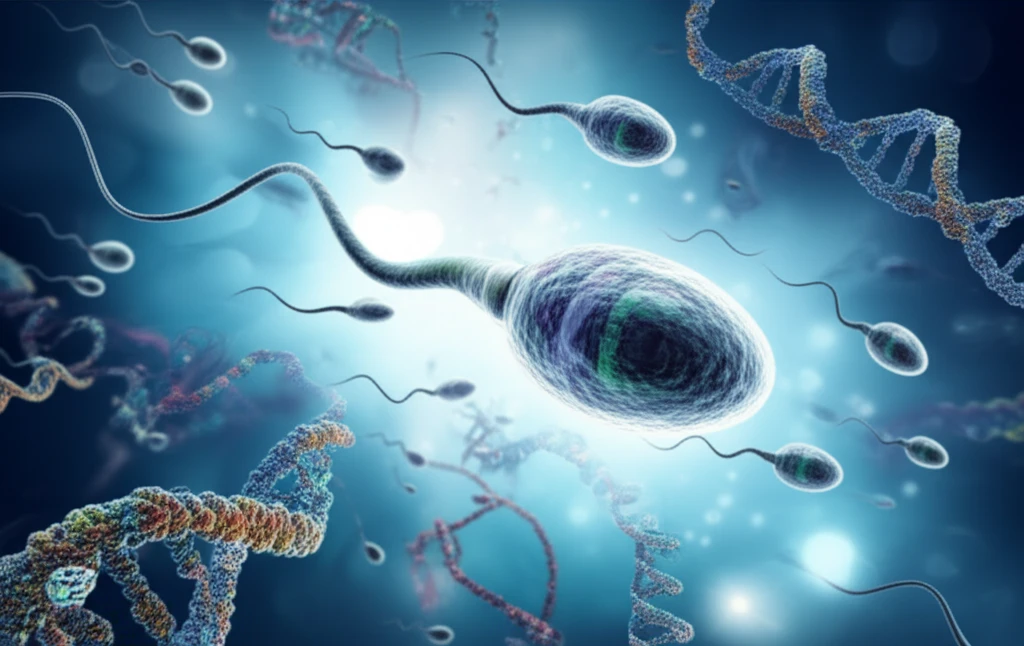
Decoding Male Infertility: Navigating Semen Analysis, Surgical Solutions, and Sperm Health
"A comprehensive look at recent research offering new insights into male fertility challenges, from vasectomy reversals to sperm health optimization."
Infertility affects many couples, and understanding the male factors involved is crucial for successful family planning. Recent research has shed light on various aspects of male fertility, offering new perspectives on diagnosis, treatment, and sperm health. This article aims to simplify and explain these findings, providing valuable information for those navigating the complexities of male infertility.
We'll delve into topics ranging from interpreting semen analysis results after vasectomy reversals to exploring surgical techniques for addressing testicular masses. Additionally, we'll examine the impact of cancer treatments on sperm and the fascinating molecular processes that govern sperm function. The intent is to empower readers with knowledge, helping them make informed decisions in consultation with their healthcare providers.
Whether you're trying to conceive, exploring treatment options, or simply seeking to understand male fertility better, this article offers a comprehensive and accessible overview of the latest research.
Making Sense of Semen Analysis After Vasectomy Reversal: What the Numbers Really Mean

Vasectomy reversal is a common procedure for men who later decide to restore their fertility. However, what happens when the semen analysis after the reversal reveals low sperm counts or other abnormalities? It's a question many couples face, and recent research offers some reassuring insights.
- Patience is Key: If the female partner's age isn't a significant factor, waiting a bit longer after the vasectomy reversal may be beneficial. Spontaneous pregnancy is still possible, even with initially low numbers.
- Sperm Parameters: Sperm density, motility and morphology are used to assess the overall quality of sperm and assist with predicting a couple's ability to conceive.
- When to Consider IVF: IVF may be considered if maternal age is advanced and time is of the essence. Your doctor can advise you on the right choice.
The Future of Male Fertility Research: Molecular Insights and Personalized Treatments
Ongoing research continues to unravel the intricate mechanisms that govern sperm function and male fertility. Studies on post-translational modifications of sperm proteins and the regulation of calcium channels offer exciting possibilities for future diagnostic and therapeutic interventions.
By understanding these molecular events, researchers hope to develop more precise and personalized treatments for male infertility, moving beyond traditional approaches to target the root causes of the problem.
The journey to understanding and overcoming male infertility can be complex, but with continued research and advancements in treatment, there's increasing hope for couples seeking to build their families.
